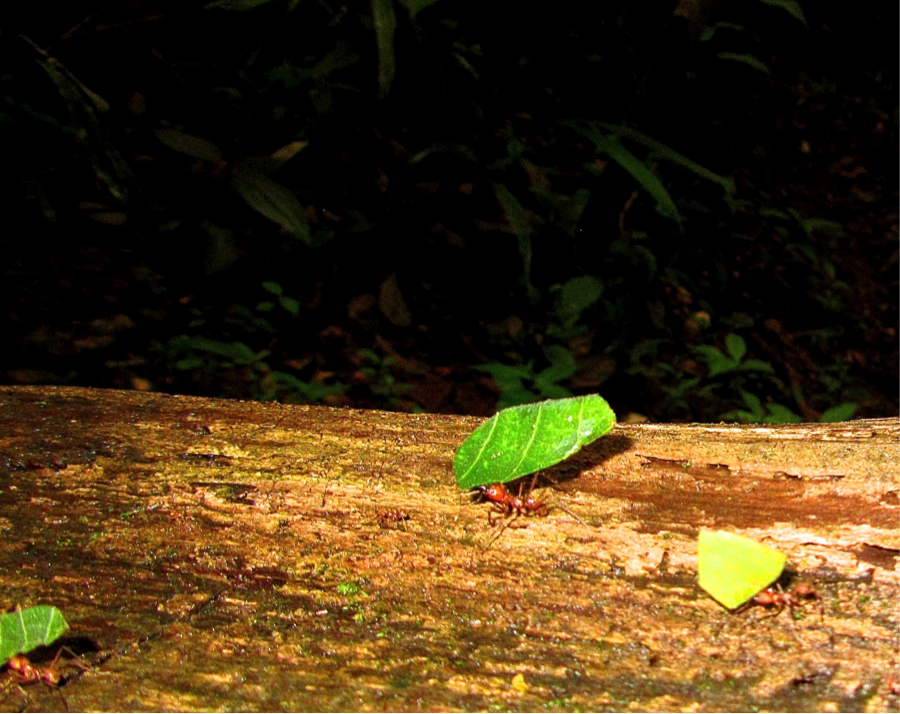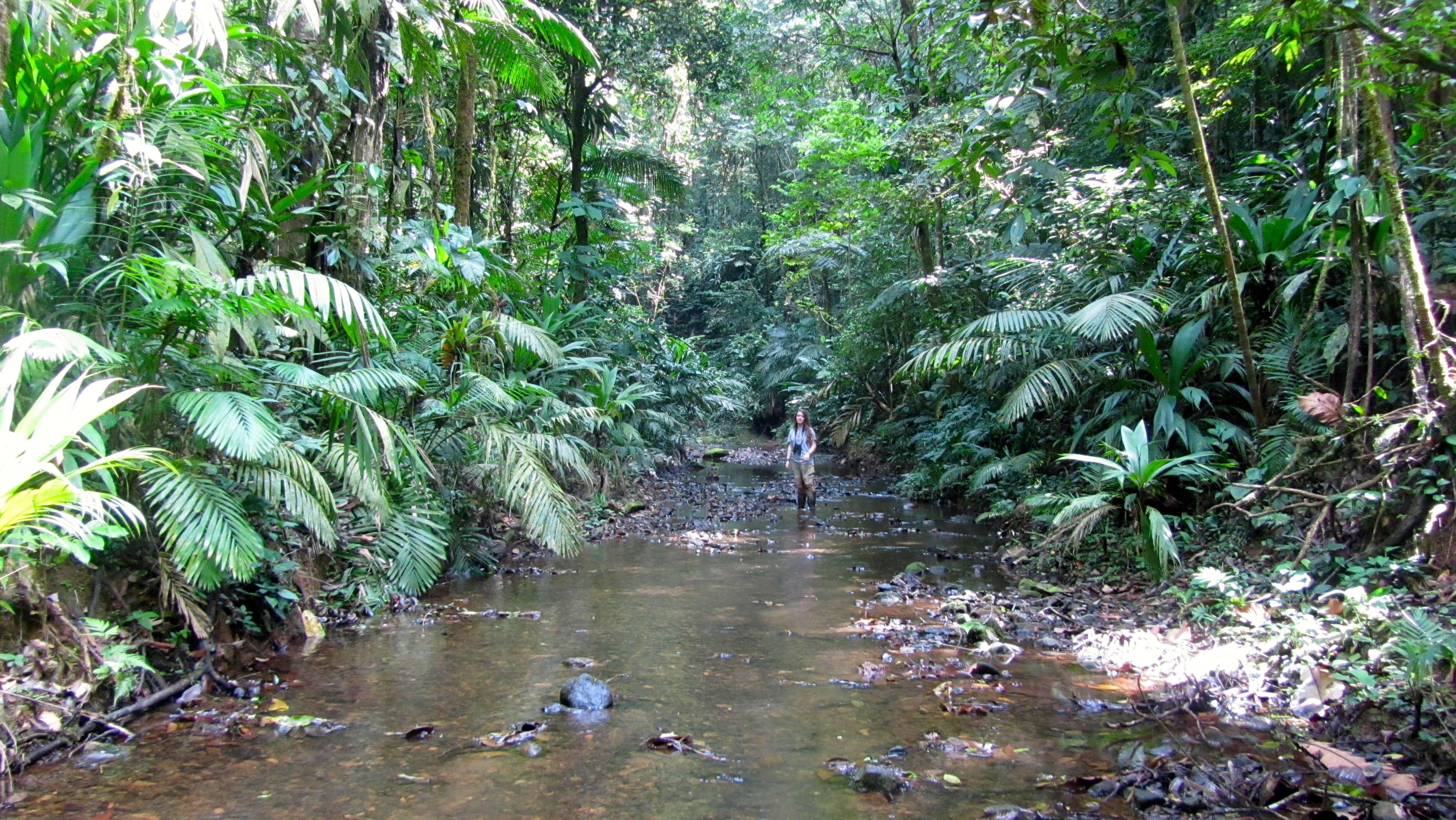The Neotropics are at the forefront of all future extinctions. As an alternative to clear-cut logging, which has destroyed approximately 40 million hectares over the past 10 years, selective logging aims to improve how we remove natural resources without severely damaging the environment. Some species thrive in selectively logged areas, while other severely decline in abundance. Therefore, we must look to indicator species, like ants, to best understand the impact we impose on the environment.

The focal species for our study, the leaf-cutter ant (Atta cephalotes), use their mandibles to cut off small pieces of leaf that they use to create fungus gardens underground that they consume. Leaf-cutter ants are the best indicator species because they are the primary herbivores in the forest, as they respond quickly to environmental changes and can indicate the welfare of other species because of their pivotal role in the forest ecosystem. Studies of leaf-cutter ants in secondary forests surprisingly suggest that they do 30 times better in selectively logged tracts of forest despite the increased fluctuations of temperature, humidity, and direct sunlight on the soil. Therefore, we wanted to see if the expected habitat preferences of leaf-cutter ants differ between primary (undisturbed) and secondary forest sites in a Nicaraguan rainforest. We hypothesized that those habitat characteristics that are essential to the survival of the leaf-cutter ant colony, like stable air temperatures, would differ between primary and secondary forests. We predicted that, in secondary forests, there would be greater fluctuations in air temperature, humidity, soil temperature, and soil moisture.
Ultimately, we found that although secondary forest sites had a greater percent of open canopy above the colonies, the ambient air temperature and humidity did not differ between sites. We think this might be because leaf-cutter ants can alter their surroundings by churning up the soil when digging new tunnels and cutting down the leaves of only specific plant species. We also found that the primary forests had higher levels of activity than that of the colonies in secondary forest. A possible explanation for this might be because plants in primary forests have more chemical defenses than plants found in secondary forests; therefore, ants need to travel further in primary forests to find edible plants. Finally, we observed a behavior in which workers place cut leaves around the perimeter of mounds within the colony and we found that this behavior happens more frequently in secondary forest sites. Since secondary forest sites had higher soil temperatures, but soil moisture did not differ between sites, we think that the placement of these cut leaves acts as a thermal blanket. The leaves might keep the chambers underground humid so that fungal gardens are able to grow despite being in a secondary forest.
In light of conservation, studying how an indicator species that thrives in a damaged forest can give us better insight into how we are impacting the ecosystem as a whole.

